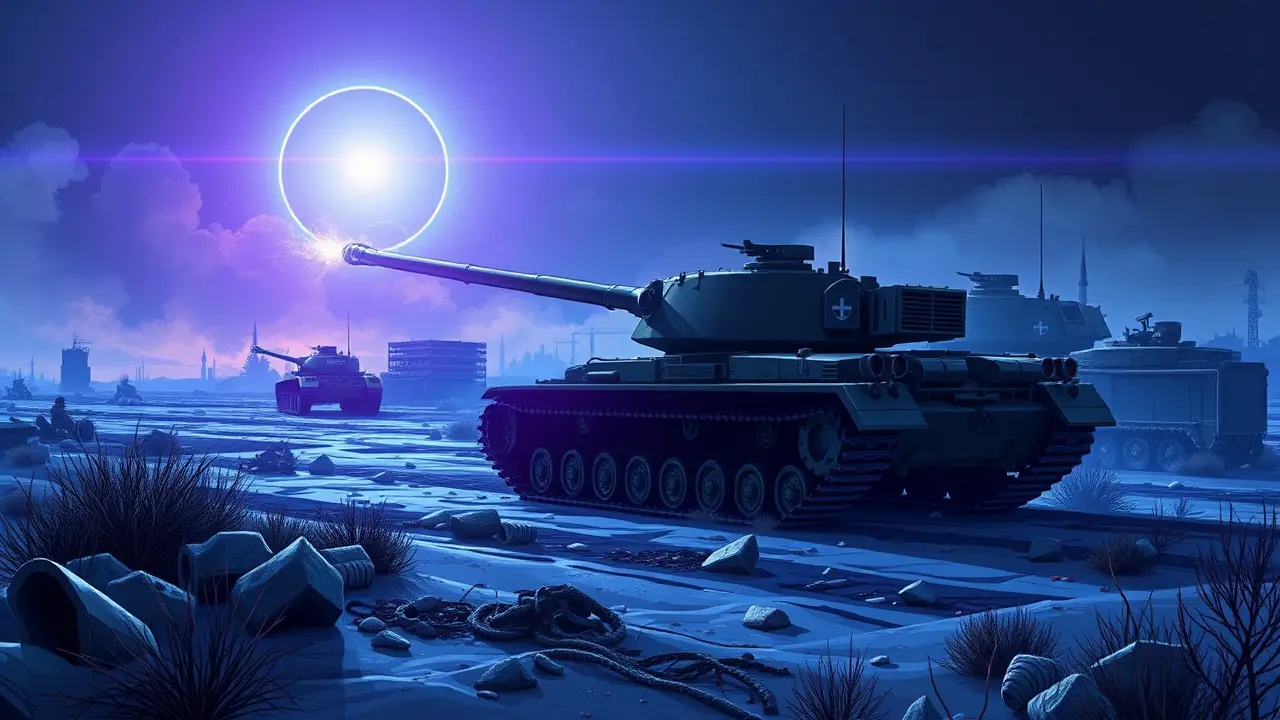
Politicsconflict & defenseMilitary Operations
NATO official says alliance will stand with Ukraine for peace.
RO
Robert Hayes
19 hours ago7 min read
In a declaration that carries the weight of a thousand battalions, Admiral Giuseppe Cavo Dragone, a senior NATO military official, has told the BBC that the alliance's resolve to stand with Ukraine for peace is unshakable, even as he starkly acknowledged the war with Russia has become a grim, bogged-down affair where it is 'almost time to sit and talk. ' This is not the clarion call of imminent victory, but the sober, pragmatic assessment of a strategist surveying a battlefield that has settled into a brutal war of attrition, reminiscent of the grinding stalemates that have defined some of history's most costly conflicts.The Admiral's words are a carefully calibrated signal, broadcast from the highest echelons of the transatlantic alliance, and they demand to be parsed with the same analytical rigor one would apply to a Churchillian speech or a Bismarckian maneuver. On one hand, the unwavering commitment to Ukraine is a necessary reaffirmation of Article 5's shadow—the collective defense principle that deters further Kremlin adventurism beyond its current, illegal conquests.It is a promise written not just in diplomatic communiqués but in the steady flow of Leopard tanks, HIMARS rockets, and F-16 fighter jets, a tangible manifestation of a long-term strategic bet that a democratic Ukraine must prevail for the security architecture of Europe to endure. Yet, the subtle but unmistakable pivot toward the negotiating table, the admission that the front lines have congealed into a bloody stalemate, reveals the other, more painful side of the strategic calculus.This is the recognition, perhaps informed by intelligence on Russian mobilization capacity and Ukrainian ammunition shortages, that a purely military solution may be a chimeric goal, potentially requiring years of slaughter and the risk of catastrophic escalation. The historical parallel is not to the clean lines of the Gulf War but to the muddy, frozen trenches of World War I, where offensives were measured in yards and paid for in hundreds of thousands of lives.Admiral Dragone is essentially framing the next, most delicate phase: how to transition from supporting Ukraine's defense to enabling a negotiation from a position of strength, without appearing to force Kyiv into a capitulation of its sovereign territory. The consequences of misstep are monumental.A premature push for talks could fracture the very Western unity that has been NATO's greatest asset, alienating hawkish Eastern European members like Poland and the Baltic states who view any concession as a dangerous precedent, while simultaneously undermining the morale of Ukrainian forces who have sacrificed everything. Conversely, an indefinite commitment to a war of attrition risks exhausting Western stockpiles and political will, particularly with the specter of a potential return of a more isolationist American administration in 2025.The Admiral’s statement is therefore a masterclass in strategic ambiguity, designed to reassure allies, warn the adversary, and prepare the global public for a protracted diplomatic process that will be as complex and fraught as the military campaign itself. It acknowledges the immutable reality that while NATO will not fight Russia directly, it will arm Ukraine for as long as it takes to reach a settlement that preserves its existential security—a peace, not just any peace, but one that does not merely serve as an intermission before the next act of aggression. The road to that table is paved with the grim currency of this war: shattered cities, a generation lost, and a global order hanging in the balance.
#editorial picks news
#NATO
#Ukraine
#Russia
#peace talks
#Admiral Giuseppe Cavo Dragone
#war update
Stay Informed. Act Smarter.
Get weekly highlights, major headlines, and expert insights — then put your knowledge to work in our live prediction markets.
© 2025 Outpoll Service LTD. All rights reserved.